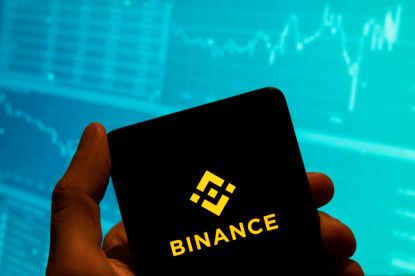Binance, the world’s largest cryptocurrency exchange, has long been dogged by allegations of shady corporate behavior.
A lengthy string of eyebrow-raising episodes catalogued by Axios include a market manipulation warning from the NY attorney general and a leaked document allegedly detailing an elaborate plan to deceive regulators. Despite all the smoke, U.S. authorities have been slow or hesitant to respond. Until now, that is.
SEC hits Binance, CEO on multiple frontsOn Monday morning, the SEC announced 13 charges against Binance Holdings Ltd., its U.S.-based affiliate BAM Trading Services Inc., and their founder and CEO, Changpeng Zhao, alleging a variety of U.S. securities law violations. The charges include:
Subscribe to Kiplinger’s Personal Finance Be a smarter, better informed investor.
Save up to 74%
Sign up for Kiplinger’s Free E-Newsletters Profit and prosper with the best of expert advice on investing, taxes, retirement, personal finance and more – straight to your e-mail.
Profit and prosper with the best of expert advice – straight to your e-mail.
Acting as an unregistered exchange, broker, and clearing agency while earning $11.6 billion in revenue that included fees from U.S.-based Binance users.Unregistered offer and sale of crypto tokens including BNB and BUSD, crypto-lending products “Simple Earn” and “BNB Vault,” and Binance.US’ staking-as-a-service program, through which the company maintains secret control of user funds.Failure to restrict U.S. users from accessing Binance.com, by facilitating and concealing the exchange activity of wealthy U.S. crypto investors. Misleading exchange users and company investors about the strength of surveillance and controls to stop token price manipulation on the Binance.US platform, while secretly engaging in “wash trading” to pump trading volumes. Binance defends operations, promises regulatory cooperationBinance responded to the charges in a company blog post just after the SEC
announcement. The company stated, “From the start, we have actively cooperated… Recently, we engaged in extensive good-faith discussions to reach a negotiated settlement.” It also noted, “We are disappointed” in the SEC’s actions to “act unilaterally and litigate.”
Binance pledged to defend itself and criticized the SEC as “misguided” in its “refusal to provide much-needed clarity and guidance to the digital asset industry.” The company then went further, contending, “The SEC’s actions undermine America’s role as a global hub for financial innovation and leadership.”
The company ultimately promised to continue cooperating with regulators around the globe “because that is the right thing to do.”
Bottom line for crypto firms and customersVery few crypto firms have registered with the SEC as securities brokers, according to Axios. Crypto industry leaders have often stated their intention to disrupt or even supplant the global financial system, so it’s natural they would attempt to play by their own set of rules.
However, it’s also unclear what benefits these exchanges get from registering, as federal agencies take longer and longer to promulgate concrete regulations covering the crypto space. The chief counsel of Ripple, a crypto firm locked in a lengthy battle with the SEC, told Blockworks that his advice for emerging crypto companies is, “Don’t launch [crypto projects] in the U.S…It’s not a level playing field.”
“Don’t launch [crypto projects] in the U.S…It’s not a level playing field.”
Stuart Alderoty, Ripple CLOThis episode is a reminder for individual investors that the cryptocurrency industry is still the Wild West, where even the biggest global players allegedly ignore the few concrete rules that govern the sector. And there’s no easy way for crypto owners to get back their assets if they get scammed or a major exchange goes bust, unlike customers of the heavily regulated, FDIC-backed U.S. banking system.
Here are a few ways to protect your crypto assets:
Don’t keep your crypto on an exchange unless you plan to actively trade it. Major and minor crypto exchanges stretching from FTX back to Mt. Gox have proven themselves unusually prone to hacks and corporate mismanagement.Keep your crypto in your own physical “cold wallet” offline. Hardware wallets that look similar to USB drives, such as Ledger and Trezor, can store multiple cryptocurrencies and cut your risk of losing your funds.Carefully guard your “seed phrase,” a series of words that give a user access to all currency and data held in a crypto wallet, including funds and private keys.When making a transaction, double-check that you’re sending it to the right wallet. Use a Virtual Private Network to shield your payment data when making transactions.Related ContentWhat’s Next for Cryptocurrency After the Collapse of FTX?Crypto Hackers Stole a Record $3.8 Billion in 2022. Don’t Be Next.Is Investing in Bitcoin and Other Cryptocurrencies Really Just Gambling?
